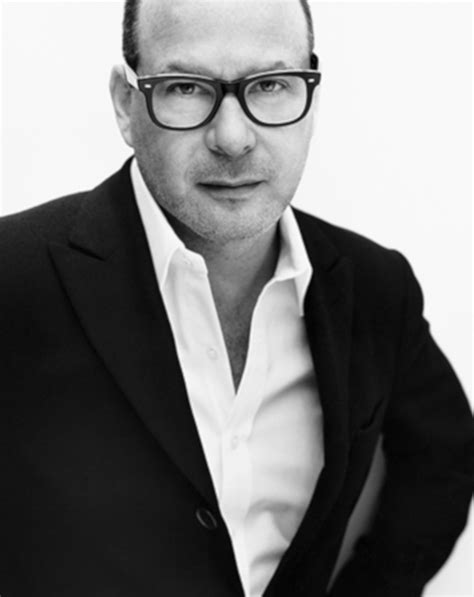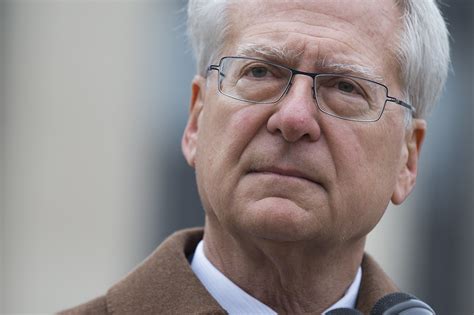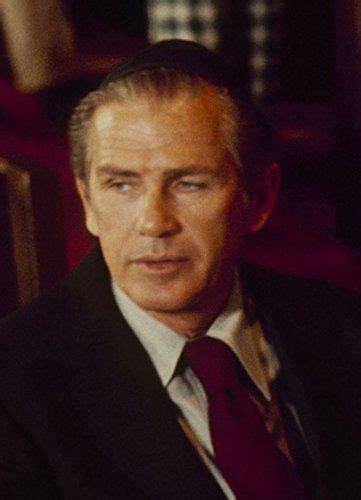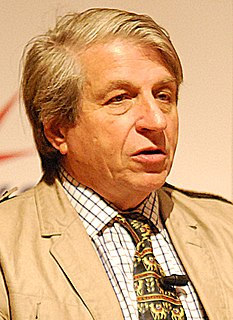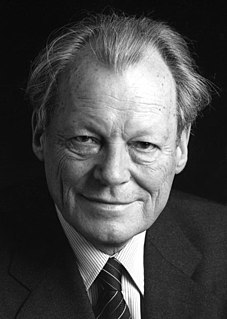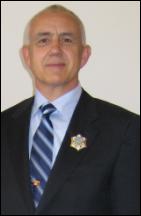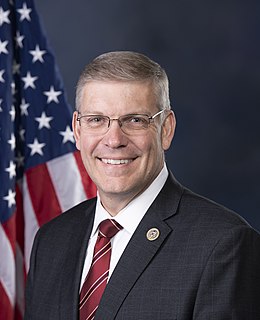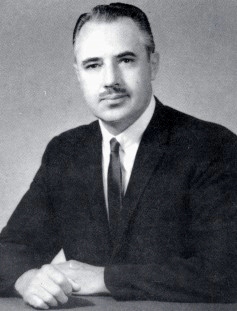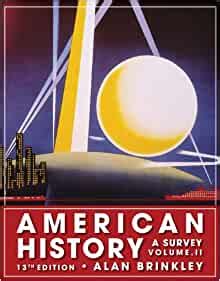Top 839 E Commerce Quotes & Sayings - Page 14
Explore popular E Commerce quotes.
Last updated on April 14, 2025.
There are a few critics overseas, and occasionally a critic will write an astute analysis of the movie. There is value in reading critics that actually have something intelligent to say, but the journalistic community lives in a world of sound bites and literary commerce: selling newspapers, selling books, and they do that simply by trashing things. They don't criticize or analyze them. They simply trash them for the sake of a headline, or to shock people to get them to buy whatever it is they're selling.
We're still promoting stupid wasteful behavior in agribusiness - everything from ethanol production for cars to genetically modified crops. In commerce just about everything we do politically is in the service of WalMart and the systems tied to it. In transportation, we could, for instance, have compelled General Motors to produce railroad rolling stock as a condition of their bail-out, but we didn't do that. Instead, we're chasing the phantom of electric cars - and, believe me, we are going to be mortally disappointed how that works out.
Over the course of the years, I've learned [that] fashion is a fascinating business about selling magic. It is done on the backs of our optimism and our insecurity. It is as much psychology as commerce. But I've also learned that every day we make split second decisions about people based on their attire and those decisions can have powerful implications - see the story of Trayvon Martin and his hoodie. It's important for us to understand how fashion works and how we connect to it.
We shall divert through our own Country a branch of commerce which the European States have thought worthy of the most important struggles and sacrifices, and in the event of peace on terms which have been contemplated by some powers we shall form to the American union a barrier against the dangerous extension of the British Province of Canada and add to the Empire of liberty an extensive and fertile Country thereby converting dangerous Enemies into valuable friends.
Commercialism is the blemish on the fair face of American life. Fighting against the terrible conditions of the explorer and pioneer, our forefathers had little time to think of beauty. Hearts and heads became as hardened to the more gracious things of life as did their bodies against physical hardship. Little by little, as nature yielded before the dynamite of their wills, life began to express itself in the same hard terms, and the great commerce of a New World bent everything to its indomitable will.
Unable to maintain their government-granted monopoly, the powerful railroad
interests turned to government to do the regulating and price-fixing which they
were unable to do themselves. In fact, the pressure that induced Congress to
enact the Interstate Commerce Act of 1887 did not come from reformers bemoaning
abuses by the powerful railroad interests; it came from the railroad interests
themselves, asking Congress to shield them against the harsh winds of
competition.
Fashion for me is the perfect combination of all the things I love. There's an element of history to it. I love understanding why people wear what they wear, why during certain periods in history women looked the way they looked. There was always a strong reason behind it, whether it was because of what was available to them or because of what was happening in the world politically or sociologically. Fashion is like an amazing blend of commerce, travel, and creativity - of studying what people were about during a particular time.
Our world, so we see and hear on all sides, is drowning in materialism, commercialism, consumerism. But the problem is not really there. What we ordinarily speak of as materialism is a result, not a cause. The root of materialism is a poverty of ideas about the inner and the outer world. Less and less does our contemporary culture have, or even seek, commerce with great ideas, and it is that lack that is weakening the human spirit. This is the essence of materialism. Materialism is a disease of the mind starved for ideas.
No man ever saw the people of whom he forms a part. No man ever saw a government. I live in the midst of the Government of the United States, but I never saw the Government of the United States. Its personnel extends through all the nations, and across the seas, and into every corner of the world in the persons of the representatives of the United States in foreign
capitals and in foreign centres of commerce.
A living body is not a fixed thing but a flowing event, like a flame or a whirlpool: the shape alone is stable, for the substance is a stream of energy going in at one end and out at the other. We are particularly and temporarily identifiable wiggles in a stream that enters us in the form of light, heat, air, water, milk, bread, fruit, beer, beef Stroganoff, caviar, and pate de foie gras. It goes out as gas and excrement - and also as semen, babies, talk, politics, commerce, war, poetry, and music. And philosophy.
The powers delegated by the proposed Constitution to the federal government are few and defined. Those which are to remain in the State governments are numerous and indefinite. The former will be exercised principally on external objects, as war, peace, negotiation and foreign commerce. ... The powers reserved to the several States will extend to all the objects which in the ordinary course of affairs, concern the lives and liberties, and properties of the people, and the internal order, improvement and prosperity of the State.
There is no one way to salvation, whatever the manner in which a man may proceed. All forms and variations are governed by the eternal intelligence of the Universe that enables a man to approach perfection. It may be in the arts of music and painting or it may be in commerce, law, or medicine. It may be in the study of war or the study of peace. Each is as important as any other. Spiritual enlightenment through religious meditation such as Zen or in any other way is as viable and functional as any "Way."... A person should study as they see fit.
The course of a great statesman resembles that of navigable rivers, avoiding immovable obstacles with noble bends of concession, seeking the broad levels of opinion on which men soonest settle and longest dwell, following and marking the almost imperceptible slopes of national tendency, yet always aiming at direct advances, always recruited from sources nearer heaven, and sometimes bursting open paths of progress and fruitful human commerce through what seem the eternal barriers of both.
Do you really think you'd win a PR war against a bunch of committed librarians?' He thought about this, but he knew I was right. The libraries were a treasured institution and so central to everyday life that government and commerce rarely did anything that might upset them.Some say they were more powerful than the military, or, if not, they were certainly quieter. As they say: Don't mess with librarians. Only they use a stronger word than 'mess'.
This is one way that wealthy Americans could really contribute. They could put hundreds of millions of dollars into the infrastructure bank, be a good investment for them, for their children, for their grandchildren, and they would directly contribute to revitalizing a big sector of middle-class wages in America and making our country more productive, so that we could create more opportunity. But I think that we could get a lot of grassroots support from, like, local chambers of commerce and other things if they understood exactly how this infrastructure bank would work.
In proportion as the bourgeoisie, i.e., capital, is developed, in the same proportion is the proletariat, the modern working class, developed - a class of labourers, who live only so long as they find work, and who find work only so long as their labour increases capital. These labourers, who must sell themselves piecemeal, are a commodity, like every other article of commerce, and are consequently exposed to all the vicissitudes of competition, to all the fluctuations of the market.
Today the guns are silent. A great tragedy has ended. A great victory has been won. The skies no longer rain with death - the seas bear only commerce - men everywhere walk upright in the sunlight. The entire world lies quietly at peace. The holy mission has been completed. And in reporting this to you, the people, I speak for the thousands of silent lips, forever stilled among the jungles and the beaches and in the deep waters of the Pacific which marked the way.
Whatever man may stand, whatever he may do, to whatever he may apply his hand - in agriculture, in commerce, and in industry, or his mind, in the world of art, and science - he is, in whatsoever it may be, constantly standing before the face of God. He is employed in the service of his God. He has strictly to obey his God. And above all, he has to aim at the glory of his God.
Moral decay first hampers and then strangles honest government, regular commerce, and even the ability to take genuine pleasure in the goods of this world. Compulsion is applied from above as self-discipline relaxes below, and the last liberties expire under the weight of a unitary state.... Since religion has lost its empire over the souls of men, the most prominent boundary that divided good from evil is overthrown; kings and nations are guided by chance and none can say where are the natural limits of despotism and the bound of license.
The plea agreement negotiated by Janet Reno's Justice Department with Nora, Gene and Trisha Lum is a hoax. It allows two key players in the campaign finance scandal to plead to lesser offenses and effectively concludes a serious investigation that, if taken to a conclusion, could have seriously affected the Clinton Administration's claim that it committed no illegalities in the campaign finance scandal. Nora Lum was a close confidant of Ron Brown and remains close to John Huang. Trisha Lum, her daughter, worked for Brown at the Commerce Department and worked on trade missions.
In my Inaugural I laid down the simple proposition that nobody is going to starve in this country. It seems to me to be equally plain that no business which depends for existence on paying less than living wages to its workers has any right to continue in this country. By "business" I mean the whole of commerce as well as the whole of industry; by workers I mean all workers, the white collar class as well as the men in overalls; and by living wages I mean more than a bare subsistence level - I mean the wages of decent living.
Remodeling defies the principles of modern commerce. You shell out great sums of money to people over whom you have no authority or power, yet these same people are constantly insinuating that you're cheap. (It reminded me of medicine, another area where you shell out great sums of money to people over whom you have no authority or power, who make you feel guilty for questioning a bill.) Construction workers are the blue-collar version of the snooty salespeople at Gucci who make $8 an hour but look down on you if you balk at a $400 alligator wallet.
As citizen-activists the world over merge, they can become an irresistible force to create peace and protect the planet. From here will come a new movement to abolish nuclear weapons and all weapons of mass destruction. From here will come the demand for sustainable communities, for new systems of energy, transportation and commerce. From here comes the future rushing in on us. How does one acquire the capacity for active citizenship? The opportunities exist every day...Active citizenship begins with an envisioning of the desired outcome and a conscious application of spiritual principles.
I anticipate the day when to command respect in the remotest regions it will be sufficient to say I am an American. Our flag shall then wave in glory over the ocean and our commerce feel no restraint but what our own government may impose. Happy thrice happy day. Thank God, to reach this envied state we need only to will. Yes my countrymen. Our destiny depends on our will. But if we would stand high on the record of time that will must be inflexible.
Dubai was brilliant, they looked around the world. They saw Hong Kong, Singapore, New York, Chicago, Sydney, London all ran British common law. British common law is much better for commerce than is French common law or sharia law. So they took 110 acres of Dubai soil, put British common law with a British judge in charge, and they went from an empty piece of soil to the 16th most powerful financial center in [the] world in eight years.
The day of my departure at length arrived. Clerval spent the last evening with us. He had endeavoured to persuade his father to permit him to accompany me and to become my fellow student, but in vain. His father was a narrow-minded trader, and saw idleness and ruin in the aspirations and ambition of his son. Henry deeply felt the misfortune of being debarred from a liberal education. He said little, but when he spoke I read in his kindling eye and in his animated glance a restrained but firm resolve not to be chained to the miserable details of commerce.
Why should not the knowledge, the skill, the expertness, the assiduity, and the spirited hazards of trade and commerce, when crowned with success, be entitled to give those flattering distinctions by which mankind are so universally captivated? Such are the specious, but false arguments for a proposition which always will find numerous advocates, in a nation where men are every day starting up from obscurity to wealth. To refute them is needless. The general sense of mankind cries out, with irresistible force, "Un gentilhomme est toujours gentilhomme.
But, that’s the whole point of corporatization - to try to remove the public from making decisions over their own fate, to limit the public arena, to control opinion, to make sure that the fundamental decisions that determine how the world is going to be run - which includes production, commerce, distribution, thought, social policy, foreign policy, everything - are not in the hands of the public, but rather in the hands of highly concentrated private power. In effect, tyranny unaccountable to the public.
He has waged cruel war against human nature itself, violating it’s most sacred rights of life & liberty in the persons of a distant people who never offended him, captivating & carrying them into slavery in another hemisphere, or to incur miserable death in their transportation thither. this piratical warfare, the opprobrium of infidel powers, is the warfare of the christian king of Great Britain. determined to keep open a market where MEN should be bought & sold, he has prostituted his negative for suppressing every legislative attempt to prohibit or to restrain this execrable commerce...
The consumption of alcohol is increasing among youth. Targeting young audiences, advertisers portray beer and wine as joyful, socially desirable, and harmless. Producers are promoting new types of alcoholic beverages as competitors in the huge soft-drink market. Grocery and convenience stores and gas stations stock alcoholic beverages side by side with soda pop. Can Christians who are involved in this commerce be indifferent to the physical and moral effects of the alcohol from which they are making their profits?
The scientific world, the materialistic world, the world of commerce, the world of business, the world of individualism, the world of capitalism, world of communism - all these worlds are the old story now. Where we think we exploit nature, we exploit people. Market rules, profit rules, money rules. We work for name, fame, power, money, profit. That's the old story.
The true theory of our Constitution is surely the wisest and best, that the States are independent as to everything within themselves, and united as to everything respecting foreign affairs. Let the General Government be reduced to foreign concerns only, and let our affairs be disentangled from those of all other nations, except as to commerce, which the merchants will manage the better, the more they are left free to manage for themselves, and our General Government may be reduced to a very simple organization, and a very inexpensive one; a few plain duties to be performed by a few servants.
Still we did not expect to be without rubs and difficulties; and we have had them. First the detention of Western posts: then the coalition of Pilnitz, outlawing our commerce with France, and the British enforcement of the outlawry. In your day French depredations; in mine English, and the Berlin and Milan decrees: now the English orders of council, and the piracies they authorize. When these shall be over, it will the impressment of our seamen, or something else; and so we have gone on, and so we shall go on, puzzled and prospering beyond example in the history of man.
In the olden times, the diversity of groups was largely a geographical matter. There were many societies, but each, within its own territory, was comparatively homogeneous. But with the development of commerce, transportation, intercommunication, and emigration, countries like the United States are composed of a combination of different groups with different traditional customs. It is this situation which has, perhaps more than any other one cause, forced the demand for an educational institution which shall provide something like a homogeneous and balanced environment for the young.
In explaining the Constitution, James Madison, the acknowledged father of the Constitution, wrote in Federalist Paper 45: 'The powers delegated by the proposed Constitution to the Federal government are few and defined. Those which are to remain in the State governments are numerous and indefinite. The former will be exercised principally on external objects, as war, peach, negotiation, and foreign commerce.' Has the Constitution been amended to permit Congress to tax, spend and regulate as it pleases or have Americans said, 'To hell with the Constitution'?
McWorld is a product of popular culture driven by expansionist commerce. Its template is American, its form style. Its goods are as much images as matériel, an aesthetic as well as a product line. It is about culture as commodity, apparel as ideology. Its symbols are Harley-Davidson motorcycles and Cadillac motorcars hoisted from the roadways, where they once represented a mode of transportation, to the marquees of global market cafés like Harley-Davidson's and the Hard Rock where they become icons of lifestyle.
Jack Bogle's passionate cry of Enough! contains a thought-provoking litany of life lessons regarding our individual roles in commerce and society. Employing a seamless mix of personal anecdotes, hard evidence and all-too-often-underrated subjective admonitions, Bogle challenges each of us to aspire to become better members of our families, our professions and our communities. Rarely do so few pages provoke so much thought. Read this book.
The New World Order is a world that has a supernational authority to regulate world commerce and industry; an international organization that would control the production and consumption of oil; an international currency that would replace the dollar; a World Development Fund that would make funds available to free and Communist nations alike; and an international police force to enforce the edicts of the New World Order.
On a global picture, if you look at the evolution of the shopping business model, many consumers tend to ask for faster shopping, which explains why e-commerce is so successful. I think the fashion clients will be more and more demanding of uniqueness and mix, match, and create-your-own-look silhouettes, as opposed to head-to-toe designers looks. Limited collections are very important, in my opinion. They put ready-to-wear at a different level, and they create pleasure and individuality.
In American terms, the accomplishment of Genghis Khan might be understood if the United States, instead of being created by a group of educated merchants or wealthy planters, had been founded by one of its illiterate slaves, who, by sheer force of personality, charisma, and determination, liberated America from foreign rule, united the people, created an alphabet, wrote the constitution, established universal religious freedom, invented a new system of warfare, marched an army from Canada to Brazil, and opened roads of commerce in a free-trade zone that stretched across the continents.
I worry more about the marketing that's taken hold since the 70s. The Jazz era, the Swing era, those were huge. Entire decades were named for music. In the 1940s - after World War II - changes in taxation, ballrooms closing, people moving to the suburbs, and the onset of target marketing and the confusion of commerce with art caused some things to happen as a result that have taken us away from jazz and what jazz offers us.
I'm not talking about Trump's brand but rather the intimately connected brand called "make America great again" that he created to make all these promises to working Americans - is intensely vulnerable, if there is sustained scrutiny of the kind we've seen about Comey and Russia. He's appointed five Goldman Sachs former executives to his Cabinet, his commerce secretary is renegotiating NAFTA to make it far better for corporations and worse for workers, and they're talking about this right out in the open... I mean, how much news have you seen about that?
When I was trying to popularize the concept of the Internet - ten or 15 years ago - I came up with this concept of "the 5 Cs." Services needed to have content, context, community, commerce, and connectivity. After that, when I was trying to think of what the key management principles were to build into the culture, I started talking about the Ps. The P's were things like passion, perseverance, perspective and people. I think the people aspect is really the most important one.
There are still to be found visionary or designing men, who stand ready to advocate the paradox of perpetual peace between the states, though dismembered and alienated from each other.... The genius of republics, say they, is pacific; the spirit of commerce has a tendency to soften the manners of men, and to extinguish those inflammable humours which have so often kindled into wars. Commercial republics, like ours, will never be disposed to waste themselves in ruinous contentions with each other. They will be governed by mutual interest, and will cultivate a spirit of mutual amity and concord.
I've spoken of the shining city all my political life, but I don't know if I ever quite communicated what I saw when I said it. But in my mind it was a tall, proud city built on rocks stronger than oceans, windswept, God-blessed, and teeming with people of all kinds living in harmony and peace; a city with free ports that hummed with commerce and creativity. And if there had to be city walls, the walls had doors and the doors were open to anyone with the will and heart to get there. That's how I saw it, and see it still.
Conservatives in general, and even so called Tea Party conservatives, are not against transportation spending. Indeed, interstate commerce is one purpose of interstate highways and byways, and is one of the things the federal government is actually supposed to spend our tax dollars on. What conservatives are opposed to is needless and excessive spending, pork-barrel spending, deficit spending, spending to pick winners and losers among American individuals and corporations, and spending to promote the social and economic whims of the Washington few.
But if in the pursuit of the means we should unfortunately stumble again on unfunded paper money or any similar species of fraud, we shall assuredly give a fatal stab to our national credit in its infancy. Paper money will invariably operate in the body of politics as spirit liquors on the human body. They prey on the vitals and ultimately destroy them. Paper money has had the effect in your state that it will ever have, to ruin commerce, oppress the honest, and open the door to every species of fraud and injustice.
It has been the White Race who has been the world builder, the maker of cities and commerce and continents. It is the White Man who is the sole builder of civilizations. It was he who build the Egyptian civilization, the great unsurpassed Roman civilization, the Greek civilization of beauty and culture, and who, after having been dealt a serious blow by a new Semitic religion, wallowed through the Dark Ages, finally extricated himself, and then build the great European civilization.
Is the United States going to decide, are the people of this country going to decide that their Federal Government shall in the future have no right under any implied power or any court-approved power to enter into a solution of a national economic problem, but that that national economic problem must be decided only by the States?... We thought we were solving it, and now it has been thrown right straight in our faces. We have been relegated to the horse-and-buggy definition of interstate commerce.
At heart, Sussman was a theoretician. In another age, he might have been a Talmudic scholar. He had cultivated a Socratic method, zinging question after question at the reporters: Who moved over from Commerce to CRP with Stans? What about Mitchell's secretary? Why won't anybody say when Liddy went to the White House or who worked with him there? Mitchell and Stans both ran the budget committee, right? What does that tell you? Then Sussman would puff on his pipe, a satisfied grin on his face.
Cuba is actually one where I am more optimistic because of the unique nature of Cuba - 90 miles off our shore with a massive ex-patriot population, now Cuban-American population that still have deep links to the island. There I am more confident that over time that the winds of commerce and telecommunication and travel start shifting the nature of that regime. But that's a small country which has almost a unique relationship to us.
I do not know much about gods; but I think that the river is a strong brown god-sullen, untamed and intractable, Patient to some degree, at first recognized as a frontier; Useful, untrustworthy, as a conveyor of commerce; Then only a problem confronting the builder of bridges. The problem once solved, the brown god is almost forgotten By the dwellers in cities-ever, however, implacable. Keeping his seasons, and rages, destroyer, reminder Of what men choose to forget. Unhonored, unpropitiated By worshippers of the machine, but waiting, watching and waiting.
Love That’s it: The cashless commerce. The blanket always too short. The loose connexion. To search behind the horizon. To brush fallen leaves with four shoes and in one’s mind to rub bare feet. To let and rent hearts; or in a room with shower and mirror, in a hired car, bonnet facing the moon, wherever innocence stops and burns its programme, the word in falsetto sounds different and new each time. Today, in front of a box office not yet open, hand in hand crackled the hangdog old man and the dainty old woman. The film promised love.
A number of aspects of mathematics are not much talked about in contemporary histories of mathematics. We have in mind business and commerce, war, number mysticism, astrology, and religion. In some instances, writers, hoping to assert for mathematics a noble parentage and a pure scientific experience, have turned away their eyes. Histories have been eager to put the case for science, but the Handmaiden of the Sciences has lived a far more raffish and interesting life than her historians allow.
We don't have to remain in this radically destructive mind-set and institutional-set. We can change, and the natural order of things could emerge in all of our societal organizations-government, commerce, religion-it's right there, waiting to happen. I often tell people that every mind is like a room in an old house, stuffed with very old furniture. Take any space in your mind and empty it of your old conceptions and new ones will rush in, good or bad. So change is more a getting rid of rather than an adding to or an acquiring.
For everywhere we look, there is work to be done. The state of our economy calls for action: bold and swift. And we will act not only to create new jobs but to lay a new foundation for growth. We will build the roads and bridges, the electric grids and digital lines that feed our commerce and bind us together. We will restore science to its rightful place and wield technology's wonders to raise health care's quality and lower its costs.
The median family of four ... paid $4,722 in federal taxes last year. That's enough to pay for a new curtain for the secretary of commerce's office, to bribe a farmer not to plant 38 acres with corn ... seven weeks of salary for a Customs man assigned to save us from the terror of high-quality, low priced foreign TV sets, or the subsidy on 6,000 bushels of wheat to prop up the Soviet regime. Surely civilization would collapse without such essential services.
Like most terms of political discourse, socialism has more or less, lost its meaning. Socialism used to mean something. If you go back far enough it meant basically control of production by producers, elimination of wage labor, democratization of all spheres of life; production, commerce, education, media, workers control of factories, community control of communities, and so on. That was socialism once. But it hasn't meant that for a hundred years. Socialism meant something different.
To cover the fact that a central bank is merely a cartel which has been legalized, its proponents had to lay down a thick smoke screen of technical jargon focusing always on how it would supposedly benefit commerce, the public, and the nation... there was not the slightest glimmer that underneath it all, was a master plan which was designed from top to bottom to serve private interests at the expense of the public... the system is merely a cartel with a government facade.






